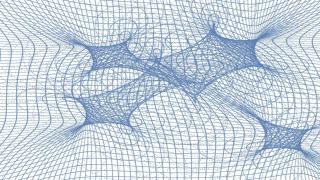Bibcode
Paiano, S.; Landoni, Marco; Falomo, Renato; Treves, Aldo; Scarpa, R.; Righi, Chiara
Referencia bibliográfica
The Astrophysical Journal, Volume 837, Issue 2, article id. 144, 16 pp. (2017).
Fecha de publicación:
3
2017
Revista
Número de citas
97
Número de citas referidas
90
Descripción
We report results of a spectroscopic campaign carried out at the 10 m
Gran Telescopio Canarias for a sample of 22 BL Lac objects detected (or
candidates) at TeV energies, aiming to determine or constrain their
redshift. This is of fundamental importance for the interpretation of
their emission models and for population studies and is also mandatory
for studying the interaction of high-energy photons with the
extragalactic background light using TeV sources. Optical spectra with
high signal-to-noise ratios in the range 4250–10000 Å were
obtained to search for faint emission or absorption lines from both the
host galaxy and the nucleus. We determine a new redshift for PKS
1424+240 (z = 0.604) and a tentative one for 1ES 0033+595 (z = 0.467).
We are able to set new spectroscopic redshift lower limits for three
other sources on the basis of Mg ii and Ca ii intervening absorption
features: BZB J1243+3627 (z > 0.483), BZB J1540+8155 (z > 0.672),
and BZB 0J2323+4210 (z > 0.267). We confirm previous redshift
estimates for four blazars: S3 0218+357 (z = 0.944), 1ES 1215+303 (z =
0.129), W Comae (z = 0.102), and MS 1221.8+2452 (z = 0.218). For the
remaining targets, in seven cases (S2 0109+22, 3C 66A, VER J0521+211, S4
0954+65, BZB J1120+4214, S3 1227+25, BZB J2323+4210), we do not validate
the proposed redshift. Finally, for all sources of still-unknown
redshift, we set a lower limit based on the minimum equivalent width of
absorption features expected from the host galaxy.
Proyectos relacionados

Astrofísica Relativista y Teórica
El estudio de las lentes gravitatorias proporciona poderosas herramientas en Astrofísica y Cosmología. Las principales aplicaciones de las lentes gravitatorias en las que se centra este proyecto son las siguientes: (i) estudiar la presencia de subestructura de materia obscura en las galaxias lente a partir de las anomalías en la magnificación de
Evencio
Mediavilla Gradolph